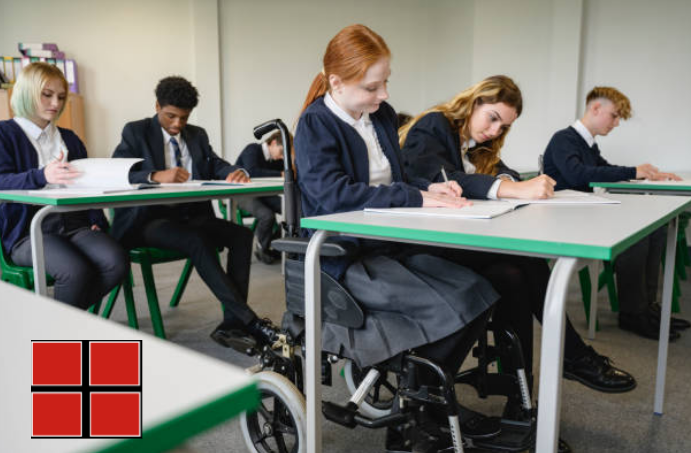ACT Walk-in Registration For International Students With Special Needs

ACT walk-in registration for international students with special needs has been made easier. ACT organization has put in place and created more helpful and supportive aids to encourage and give hope to students with disabilities to gain admission easily into colleges. Although, registering for the ACT walk-in test can be a challenging task but with the right guidance and support, it will be a smooth process. Firstly, the ACT candidates with special needs programs now have newly improvised features that will aid the candidate have a smooth registration and examination.
Features For ACT Walk-in Registration For International Students With Special Needs
- Extended time
- Separate testing room
- Use of a computer for essay writing
- Assistive technology
- Extra breaks
How To Choose A Test Date During ACT Registration
It is best for candidates who are registering for the ACT test to know how to choose a test date in the registration portal. The ACT test offers a variety of options to choose from as for when you will be more comfortable writing your test.
The test is usually written on Saturdays and at different specific locations. Some of these locations might be closer or far from where you live but it is best for the candidates registering for this examination to choose an examination center that is closer to where they live. The test is very much available to people who live in the United States, Canada, and Puerto Rico.
The students should always refer to the ACT official website for more details, especially on the date of the next ACT test. The test date is also flexible, especially for international students because of religious reasons might not be able to attend the test on a Saturday, the candidate can apply for a non-Saturday test date which is very much available on the ACT website.
How To Register For The ACT test
Just like any other international examination, all interested candidates who wish to apply for the ACT examination will first head to their official website and create an account. Creating this account should be done with your full name in the same way it appears and arranged in your official documents.
During the registration process, the candidate will be required to provide the name, address, date of birth, high school attended, and some other facts about their high school career, preferences, and college plans. Remember, there are lots of other questions to be answered and boxes to tick. All these questions should be answered carefully in such a way that it reflects your official documents.
International students should also be aware of all the necessary documents such as their passports and visa and they should also check well with the school or testing centre to see if they offer the ACT Walk-in Registration For International Students With Special Needs.
Note that the ACT Walk-in Registration For International Students With Special Needs is now able to make registrations using their phones, laptops, and tablets. When you choose any of these options, the customer care representative will assist in the process by asking for your basic information and also serve as a guide in the registration process.
Important Requirements During ACT Registration
One of the most sensitive and basic requirements during ACT registration is the passport photograph. Whether a candidate is registering online, over the phone, or in a registration center, a headshot photograph is required. There is an automated, generally accepted way of taking a headshot photo for registration.
Firstly, the candidate is not allowed to put on glasses, headgear, face caps, or any other accessories because the headshot photo will appear on the printed-out paper ticket of the candidate and it is thus an official document. It is also a valid means of identification in the test hall which is why candidates are advised to pay close attention to the headshot photo because if the headshot photo is blurry or does not meet the basic requirement or standard, the candidate would not be allowed into the test hall.
Another important requirement during the ACT registration is the sending of scores to colleges. The candidate will be asked to choose some colleges of choice that you want to see your results. The candidate will be asked to provide four colleges of choice that they feel like attending in case they do not meet the st
andards or required cut-off mark of the college, the other ones might consider the candidate. At the end of the test, the candidate’s score will be sent automatically to these colleges.
The candidate is also allowed to take a mock test, and this can be done a week before the main test but they should bear in mind that this will also incur an extra cost.
Registration Deadline For ACT Test
The ACT test usually give enough time for candidates especially those with disabilities and special needs an extended time for them to make their registrations. The deadline usually falls at about a month before the date for the test itself.
Candidates that eventually miss the deadline can be lucky to be given spare time for late registration but they should bear in mind that it usually comes with an extra charge. Another disadvantage of late registration is that most of the locations that are near to the candidate might have been exhausted, so the candidate would be taken outside another town or city to write the test.
Registration Considering Students With Special Needs
In many cases where students with special needs find it difficult to attend examinations in a test center because of the distance or because there is not a test center closer to the student’s home. The candidate can be considered as a teacher or an external invigilator who is approved by the ACT organization and will be sent with the test papers to help students with disabilities or other special aids write their examination without stress.
In most cases, they are usually given the opportunity for extra stretch breaks, and the use of easier test formats like text-to-speak devices for mute or dumb candidates, braille for the blind, and a sign interpreter for the deaf. There are also other options like wheelchair accessibility and the use of DVDs or projectors.







